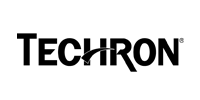How to maximize benefit from your hydraulic oil


The Hydraulic system is key to construction equipment with these systems demanding lubrication to function dependably, for which they require efficient hydraulic fluids, ones with optimal viscosity and low power consumption properties.
Not all hydraulic fluids are the same with three types being synthetic, petroleum, and water-based, each with its own set of strengths and weaknesses.
A few features to remember about hydraulic fluids is that high-viscosity oils cause hydromechanical inefficiencies within the system, i.e. slower flow, with the advantage of improved volumetric efficiency resulting in less leak. Whereas low Low-viscosity (thinner) oils cause volumetric inefficiencies through leakage, but with the boon of improved hydromechanical efficiency (better flow)
However, when buying cheaper hydraulic oils, most will lose efficiency either due to loss of flow or volumetric leakage. Typical monograde oils have reduced control over their viscosity, as they are either unable to flow well in chillier conditions or are worn out due to leakage in severely hot conditions. Problems often arise when there are varying extreme conditions.
That is when a premium, multigrade hydraulic oil can make a difference...
These oils have greater viscosity control over a larger temperature range, smooth fluidity at lower temperatures, decent volumetric efficiency at high temperatures, useful rust, and oxidation inhibitors, and fluid cleanliness that meets OEM specifications. According to reports of field tests, the use of premium hydraulic oil contributed to improved efficiency gains as high as 7.5% and productivity with better electrical energy savings and efficiency.
Also, keep in mind that particle contamination is the primary source of lubricant-related failures in machine equipment with a high particle count in the hydraulic oil contributing to foaming, varnish, and the unwanted tendency to demulsify water in the oil, the latter of which can cause fire-related accidents.
It is critical that hydraulic oil needs to meet OEM cleanliness specifications to help avoid damage to critical components throughout the hydraulic system, including servos, directional valves, hose, and pump parts.
In short, when it comes to hydraulic fluids, pick the smarter option, not the cheapest option. A multi-grade option with useful additives and base oil, especially with a lack of contaminant particles, like Rando HD may be your best bet.





























